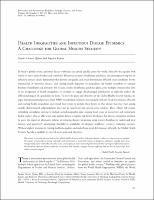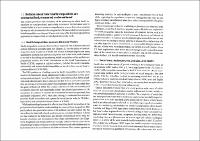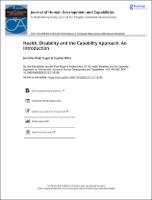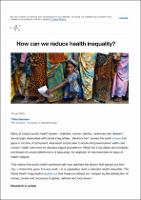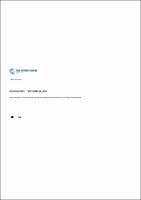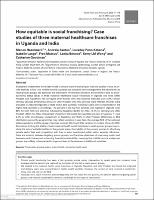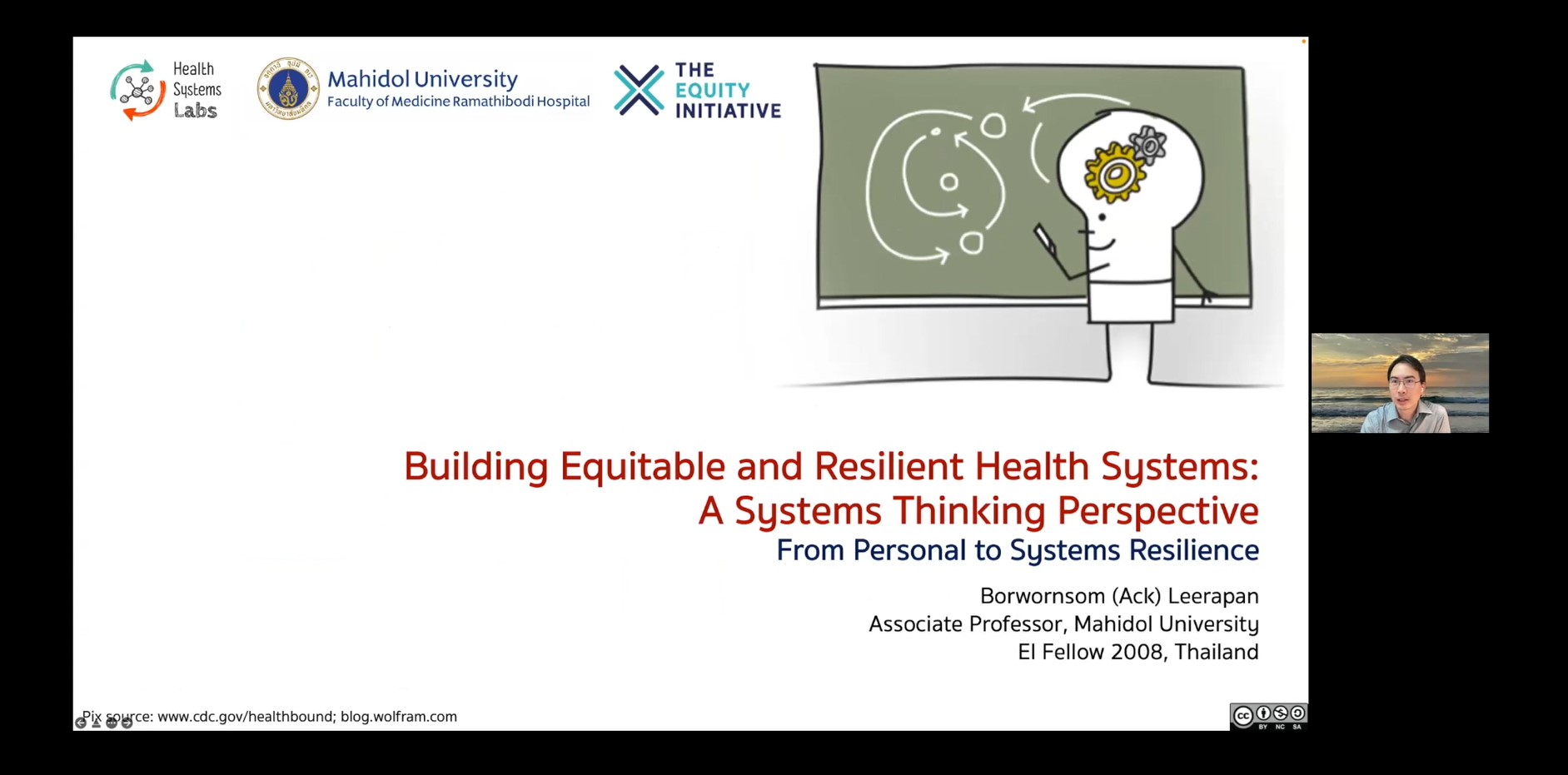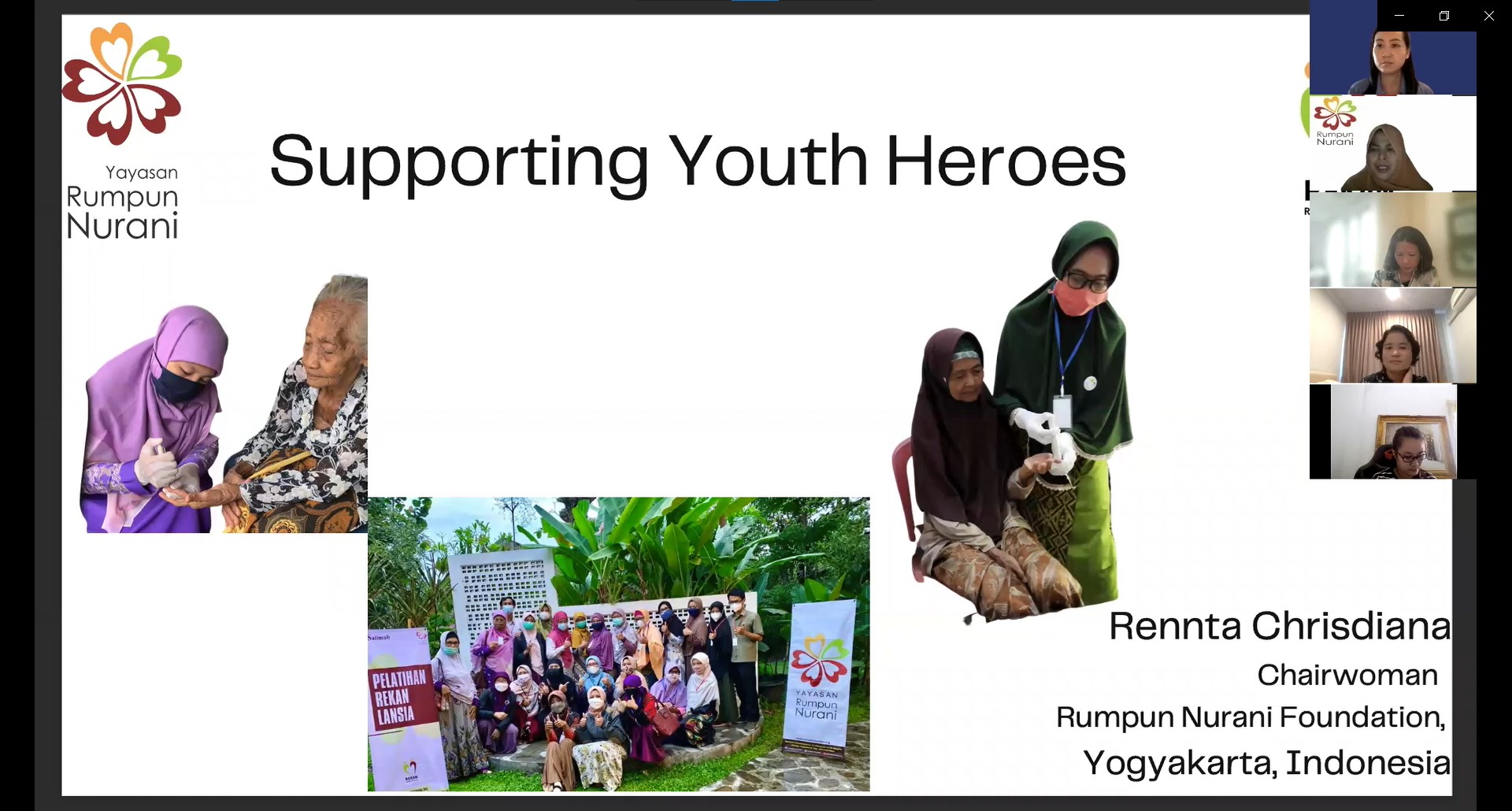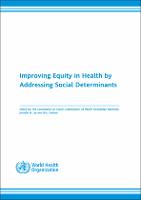Browsing by Title
Now showing items 131-150 of 299
-
Health Inequalities and Infectious Disease Epidemics: A Challenge for Global Health Security
(2014)
In today's global society, infectious disease outbreaks can spread quickly across the world, fueled by the rapidity with which we travel across borders and continents. Historical accounts of influenza pandemics and contemporary reports on infectious diseases clearly demonstrate that poverty, inequality, and social determinants of health create conditions for the transmission of infectious diseases, and existing health disparities or inequalities can further contribute to unequal burdens of morbidity and mortality. Yet, to date, studies of influenza ... -
Health inequalities: critical perspectives
(Oxford University Press, 2016)
This section provides a brief summary of the main ways in which health in-equalities are conceptualized, particularly in terms of the indicators used to stratify health. It is by no means a comprehensive account but rather considers the ways in which researchers focusing on the UK have tended to conceptualize health inequalities over the past 30 years and some of the key chalenges to these approaches (critiques which are developed later in this book). -
The health needs and access barriers among refugees and asylum-seekers in Malaysia: A qualitative study
(2018-08-15)
Background: In Malaysia, refugees and asylum-seekers are a vulnerable group that often face circumstances in which their health and wellbeing can be compromised. This qualitative study sought to examine the key health concerns and barriers to healthcare access among refugees and asylum-seekers in Malaysia through the lens of healthcare professionals, program staff and experts on refugee and migrant health. Methods: We conducted 20 semi-structured in-depth interviews with experts, healthcare professionals, program managers or executives from ... -
Health System Responses to the Health Needs of Refugees and Asylum-seekers in Malaysia: A Qualitative Study
(2019-05-06)
Background: This study was conducted to examine the responses and challenges in addressing the health needs of refugees and asylum-seekers in Malaysia from a health systems and policy perspective. Methods: Twenty semi-structured in-depth interviews were conducted with key informants comprising experts, healthcare professionals and program personnel with professional experience in refugee health issues. Deductive and inductive analyses were conducted to identify themes. Results: Our study identified a broad range of actors involved in the response ... -
Health Workers on the Political Frontlines
(2022-06) -
Health, Disability and the Capability Approach: An Introduction
(Journal of Human Development and Capabilities, 2015)
This special issue of the Journal of Human Development and Capabilities focuses on two areas of substantial and growing importance to the human development and capability approach: disability and health. The research on disability, health and the capability approach has been diverse in the topics it covers, and the conceptual frameworks and methodologies it uses, beginning over a decade and a half ago in health (Ruger 1998) and more than a decade ago in disability (Baylies 2002).1 We are pleased to share a set of articles in these two areas. ... -
Healthcare for migrant workers in destination countries: a comparative qualitative study of China and Malaysia
(2020-11-09)
Objectives: This paper explores policies addressing migrant worker’s health and barriers to healthcare access in two middle-income, destination countries in Asia with cross-border migration to Yunnan province, China and international migration to Malaysia. Design: Qualitative interviews were conducted in Rui Li City and Tenchong County in Yunnan Province, China (n=23) and Kuala Lumpur, Malaysia (n=44), along with review of policy documents. Data were thematically analysed. Participants: Participants were migrant workers and key stakeholders ... -
HIV and syphilis knowledge, perceptions, and practices among Myanmar migrant workers in Samut Sakhon Province, Thailand
(2022-11-28)
Background: Thailand has been one of the largest migration hubs in Southeast Asia for the past four decades and keeps attracting migrants from neighboring countries. Due to difficulties associated with their status, migration can place individuals at a heightened risk for sexually transmitted diseases. This study aimed to examine factors influencing HIV and syphilis preventive behaviors among Myanmar migrants in Samut Sakhon, Thailand. Methods: A cross-sectional mixed-method study was conducted among Myanmar migrants aged 18 years and above ... -
HIV/AIDS health care challenges for cross-country migrants in low- and middle-income countries: a scoping review
(2024-02-26)
Introduction: HIV/AIDS has been one of the world’s most important health challenges in recent history. The global solidarity in responding to HIV/AIDS through the provision of antiretroviral therapy (ART) and encouraging early screening has been proved successful in saving lives of infected populations in past decades. However, there remain several challenges, one of which is how HIV/AIDS policies keep pace with the growing speed and diversity of migration flows. This study therefore aimed to examine the nature and the extent of HIV/AIDS health ... -
How can we reduce health inequality?
(2015-01-19) -
How Countries in Southeast Asia are Working Together to Accelerate Human Capital Development
(THE WORLD BANK, 2019) -
How equitable is social franchising? Case studies of three maternal healthcare franchises in Uganda and India
(Oxford University Press in association with The London School of Hygiene and Tropical Medicine, 2018-04-01)
Substantial investments have been made in clinical social franchising to improve quality of care of private facilities in low- and middle-income countries but concerns have emerged that the benefits fail to reach poorer groups. We assessed the distribution of franchise utilization and content of care by socioeconomic status (SES) in three maternal healthcare social franchises in Uganda and India (Uttar Pradesh and Rajasthan). We surveyed 2179 women who had received antenatal care (ANC) and/or delivery services at franchise clinics (in Uttar Pradesh ... -
How Management and Leadership Training Can Impact a Health System: Evaluation Findings From a Public Health Management Training Program in Cambodia
(2022-01-26)
In 2017, the National Institute of Public Health in Cambodia collaborated with the U.S. Centers for Disease Control and Prevention to provide management and leadership training for 20 managers and senior staff from 10 health centers. We conducted a mixed methods evaluation of the program's outcomes and impact on the graduates and health centers. From June 2018 (baseline) to January 2019 (endpoint), we collected data from a competency assessment, observational visits, and interviews. From baseline to endpoint, all 20 participants reported increased ... -
How to promote the hierarchical diagnosis and treatment system: A tripartite evolutionary game theory perspective
(2023-01-05)
Due to the disorderly access to medical care and inefficient use of health resources, the advancement of the hierarchical diagnosis and treatment is more valued in promoting health system reform. Hence, this article integrates prospect theory into an evolutionary game model of the local government health departments, the medical institutions, and the patients in the system promotion of the hierarchical diagnosis and treatment. The simulation shows the specific influencing mechanism of the psychological perceived value of game subjects. Then by ... -
Human resources for health: task shifting to promote basic health service delivery among internally displaced people in ethnic health program service areas in eastern Burma/Myanmar
(2014-09-29)
Background: Burma/Myanmar was controlled by a military regime for over 50 years. Many basic social and protection services have been neglected, specifically in the ethnic areas. Development in these areas was led by the ethnic non-state actors to ensure care and the availability of health services for the communities living in the border ethnic-controlled areas. Political changes in Burma/Myanmar have been ongoing since the end of 2010. Given the ethnic diversity of Burma/Myanmar, many challenges in ensuring health service coverage among all ... -
Ideation Caravan by Borwornsom Leerapan (Cohort 2018)
(The Equity Initiative, 2022-01-23)
Building Equitable and Resilient Health Systems: A Systems Thinking Perspective From Personal to Systems Resilience -
Ideation Caravan By Pham Kieu Oanh (Cohort 2016)
(The Equity Initiative, 2022-01-23) -
Ideation Caravan by Rennta (Cohort 2019)
(The Equity Initiative, 2022-01-23)
REKAN (Community Health Volunteers) for Elderly Innitiative Capacity Building for Community Health Volunters to Promote Well-Being for the Elderly During COVID-19 Pandemic in Yogyakarta, Indonesia. -
Improving equity in health by addressing social determinants
(World Health Organization, 2011)
This recently published book highlights actions to improve health equity based on findings from the nine global Knowledge Networks that were established during the WHO Commission on Social Determinants of Health. Their task was to synthesize existing evidence and identify effective and appropriate actions to improve health equity in nine thematic areas: - globalization; - gender; - social exclusion; - early child development; - urban settings; - employment conditions; - health systems; - public health programs; and - measurement and evidence. ... -
Improving Insurance Protection for Rare Diseases: Economic Burden and Policy Effects — Simulation of People With Pompe Disease in China
(2022-10-24)
Background: The economic burden of Pompe disease (PD) is under-researched. This study aimed to fill this gap and provide evidence-based suggestions for policy improvement based on policy simulation. Methods: Data were derived from a nationally based cross-sectional survey on rare diseases in early 2018. Answers from 92 PD patients were used for data analysis and simulation. Catastrophic health expenditure (CHE) and impoverishment due to illness (IDI) were adopted to measure PD patients’ economic burden. Two typical reimbursement patterns, a ...

